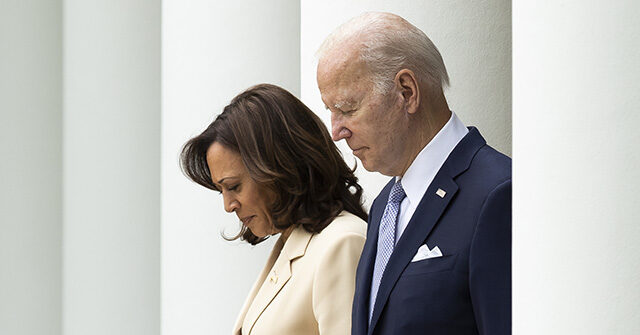Tensions are escalating within the Democratic Party as President Joe Biden’s administration and Vice President Kamala Harris’s campaign navigate a challenging political landscape. Reports reveal that Biden’s senior staff is feeling emotionally unsettled following his decision to withdraw from the race, which has led to feelings of discontent toward Harris’s bid to assume the top position on the ticket. The division became more apparent after an incident during a press conference where Biden made remarks just as Harris was set to speak in Michigan, overshadowing her event and reducing her coverage, illustrating the friction between the two sides.
Amid these rising tensions, Harris had earlier criticized Florida Governor Ron DeSantis for allegedly ignoring her call regarding Hurricane Milton. However, shortly after, Biden commended DeSantis for his cooperation, undermining Harris’s stance. Sources indicate that Biden was not informed of Harris’s earlier jabs at DeSantis prior to making his comments, reflecting a lack of coordination and communication between the White House and Harris’s campaign. There are growing concerns within Harris’s circle that Biden’s team feels slighted and is not fully committed to supporting her campaign.
These internal conflicts have implications beyond personal disagreements; they jeopardize the cohesion necessary for a successful campaign. One insider noted that some of Biden’s aides who have transitioned to Harris’s team feel branded as disloyal, creating a rift between long-time Harris supporters and new staff from Biden’s administration. This division raises questions about the teamwork essential for a victorious election campaign, with some of Harris’s allies expressing frustration that the White House lacks a strategic focus on how decisions affect her campaign.
Despite the ongoing tensions, the White House maintains that there is no strain among senior staffers. A spokesperson affirmed that staff transitions were anticipated as the election nears and that Harris’s team has been involved in key meetings with the administration. Biden himself is positioning his administration’s achievements, such as improved unemployment figures and labor reforms, as essential accomplishments heading into the election cycle, while Harris is introduced as leading new economic initiatives that have not been prominently featured in her current vice-presidential role.
Biden publicly endorsed Harris upon announcing his departure from the race, signaling his commitment to her leadership. The White House has sought to reassure supporters that they are working to provide Harris with necessary resources for her campaign. However, these statements contrast sharply with the reports of internal discord, leading to further questions about the effectiveness of their collaboration and the impact it will have on the overall electoral strategy.
Ultimately, the friction between Biden’s administration and Harris’s campaign reflects a broader dynamic of balancing loyalty and strategy within the Democratic Party as they gear up for the upcoming election. The ability to present a united front and effectively coordinate their efforts will be crucial in rallying support among voters. While both Biden and Harris have publicly committed to supporting each other, the underlying tensions and communications missteps may pose significant challenges as they move forward into a competitive election season. Actions taken in response to these issues will likely determine their chances of securing victory in the approaching contest.

